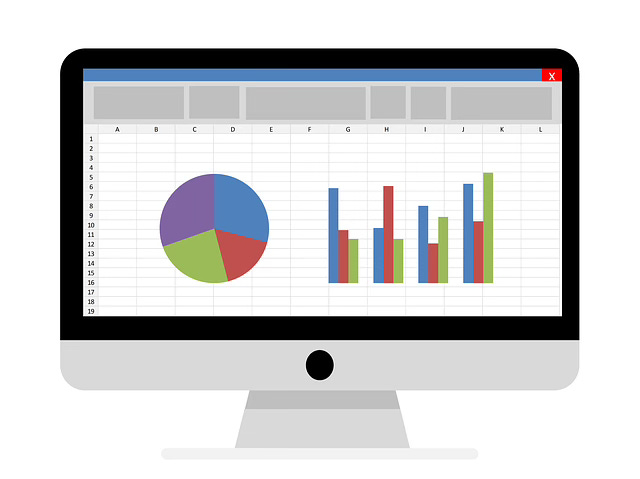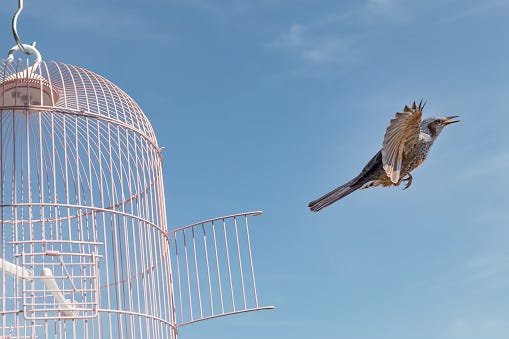The worst question to ask a child is “What do you want to be when you grow up?”
Sending someone down that road blows up in frustration, failed relationships, and mental anguish somewhere around 40 or 50. That question puts our assumptions on other humans that they have to become an expert at something or excel in some physical endeavor, such as sports.
Cognitive science studies tell us the better question, for children and people every year of their life is “How many things do you want to do and experience before you die?” Amazingly, everyone can answer that easily and the answer can change as rapidly as the human learns and unlearns. What seemed to work the first 20 years of life for performance and praise from people who matter starts to crumble when we take on the daily drill of going to work and making money. What seemed to work in the short term, such as repetitive practice and cramming, did not result in durable knowledge.
Real-world challenges are less predictable, with delayed or ambiguous feedback. All professional paths demand more adaptive, creative problem-solving, and critical thinking. Simple rote learning or shifting to artificial intelligence tools to make you look like an expert always falls short of the desired result.
Falling Flat or Living Large—Your Choice
Everyone knows two dimensions mean something flat. Communication and professionalism are two dimensions and flat. An Excel worksheet with horizontal and vertical is flat. Reality and life is three dimensional (3-D). When we add a human being—and in our case, an adult with gifted traits, the third dimension makes everything meaningful.
The entire world experience is all humans, all professions, and all communication. That’s punching above our weight, so we formed a community for adults, most of whom are over 40, with exceptional talents and giftedness, along with a first half of life filled with professionalism and communication.
We speak to the specific feelings, thoughts, and accomplishments of gifted professionals and communicators, plus open arms to allow all subscribers who want to learn more about themselves, their relationships, career transitions, and brain health.
We are extremely curious adults who ask questions and better questions—not to challenge individuals; instead, we challenge how and why we think. We challenge assumptions. We seek maximum pleasure in taking our conversations to places where the brain explodes with joy, discovery, awe, and feeling fully alive.
Lessons Learned from Online Businesses and Leonardo da Vinci
Ken Burns's latest documentary on Leonardo da Vinci premiers today on PBS. Burns covers the life and work of this Renaissance genius and explores his artistic, scientific, and engineering depths, plus his polymath of profound intellect and soaring imagination. Has there ever been a more curious, more impactful human than da Vinci? Would he fit in today with our community of gifted professionals and communicators? He probably started it in the 15th century, without the benefit of the Internet or Substack.
Just in the past 10 years, what are the lessons we are learning about professionals and how are we coming to grips with the question we’ve been avoiding: What If Jack of All Trades Triumphs Over Deep Expertise?
The choice is yours on how you want to finally look this monster in the eyes and discover who you really are and what you must start, work on further, teach to someone else, or finish up before you die.
As you take a good look at Leonardo da Vinci through the genius of a Burns documentary or focus only on the years you’ve been alive, we offer these lessons learned starter questions for your thinking, journaling, and discussions in a community that “gets you.”
How is it possible that someone in their 20s with no college degree, no professional certifications, no mentors, and no original ideas can create a website, build skills with a keyboard and platforms owned by others, declare themselves an expert, and make more than $100,000 a year selling online content?
How do you resist the pressure to specialize too early or fall for the false future of the niche? Instead, who will teach you to embrace diverse interests, continually experiment with new ideas and challenges, and gain mental flexibility and self-love as a professional with multiple options or an adult with multiple professions, like da Vinci? For example, you can get a nursing degree and discover there are more than 500 different kinds of nursing practices and patient populations.
How do you accept the reality that you live and grow every day but your professional paradigms or communication practices may have gotten stuck in the past? Who taught you how to unlearn? Who taught you how to pivot without feeling guilty? Where do you look for permission to abandon deeply ingrained habits, especially in situations where familiar tools and methods no longer work?
How do you start a new profession or shift to a different business model midstream in your life? How do you know you are at midstream and do you believe in finding greater success by walking away from what no longer works? Is the myth of persistence and resilience trapping you in grinding it out and grinding yourself down in a professional practice that lost the magic and passion that attracted you long ago?
How did Leonardo da Vinci do so much, learn so fast, and create brilliantly, without a mobile phone, apps, the Internet, automobiles, airplanes, or encyclopedias? Yes, from other people and nature are the first clues. Now focus on all the ways we connect with other people and how we hunger for learning, from people who can prove their stuff works? Knowledge without proof of performance is someone who reads stuff on the Internet and claims to be an authority.
Do you see that the secret and the third dimension is connections with humans? Do you see that relationship building and daily attention to “meeting people where they are” is equally important with the two other dimensions—professionalism and communication? What did da Vinci have and where did he go all day? Think about coffee houses, pubs, street conversations, universities, community centers, and traveling to another place to seek out a person who seems to have already experienced something you want to learn for the first time—or from a different point of view.
Before online enterprises, we had to leave the house, go to an office, get on a plane, attend a professional convention, and spend a lot of hours out of our lives, just to build relationships. The whole dynamic of relationships changed with the Internet and the importance of connection, relevance, intentions, strategy, and conversations changed. Now relationships form rapidly online. You still have limited time to devote to 100 best friends, but the traffic of people through your life is more rapid. People meet you for the first time. Others lose touch, don’t answer back, or they die
Here’s what we do in the Gifted Professionals and Communicators community and we’re glad you’re here to join us:
Challenge assumptions. Ask better questions. Ask smarter questions to get to truths.
Before doing anything, always pause and ask “How does that align with my gifts and natural abilities or am I observing something that works for someone else?
Do others say you are smart and good at learning? Are you even better at unlearning, revising, experimenting, and getting to what your life has always been about — creating something of value and connecting your value with other humans?
What are the ultimate acts of creation and connection?
Why is professionalism by itself worthless without communication? Why is communication itself worthless without substance, knowledge, and a point?
What is the same or different about the human capacity for love and devoting time and energy to relationships? Even if you have 50,000 subscribers or 3,000 followers, how many of those people are the ones who have your back or you would let them in your home at 3 a.m. if they showed up seeking safety?
It Happened to Me After 50—Letting Go of Deep Expert Status
What do you think would happen to you if you discovered at 50 you might be gifted? At first, you feel disoriented, maybe in denial, and then a burst of freedom and liberation. All of those patterns and mistakes in your life and career choices brought you great moments of success and the constant burden of unspoken frustrations.
Adults with gifted minds were born that way. What comes with age and experience is the ability to let go, pivot, explore, and question everything with a healthy curiosity called adventure. The liberation starts with a single moment in your life when another human opens the door to the natural state of you and intense curiosity takes over.
For me that flash forward to a mind-blowing view of the rest of my life came in a conversation over coffee with a diagnosed, genuine genius with professional experience working with gifted children and adults.
Today, I work with exceptionally talented professionals who don’t need more knowledge, courses, books, or templates. They are ready to step into a big transition with someone who has been there and back—someone who can reach the core of who they are and the extraordinary gifts they offer, with ease and grace, in just a month or two. Then I help them write, communicate, and connect that truth in clear words.
We are both here for thought-provoking conversations. Please click the comment button to start a conversation with me. I read and respond to ALL comments.
Do you feel like you're on the edge of something amazing, but you just can't figure out what it is? That's where I come in. My name is Georgia Patrick. I work with curious, intense, understanding professionals—real and retired, to tap into their full potential and get extremely clear on their gift (their value) to individuals actively seeking such wisdom. It starts with an email. Maybe, later, a short call to make sure you are understood.
👉 Our Community
👉 Our LinkedIn page









How interesting a thesis! When I attended university in the’60s, each discipline jealously guarded its boundaries from incursions by other fields of thought and practice. One elected a “major” field of study and some sort of useful or complementary “minor” field of interest. Ever curious about overlaps, I graduated with two majors and eight minors. I’m guessing I am not so unique in insisting upon “looking under the hood” of a bunch of career vehicles—and still driving one off the lot in a timely and responsible manner. Good job, Georgia!!!
I love this! My father was a Nebraska farmer, and he often said, "I'm Jack of trades, master of none!" and he was one of the wisest people I have ever known! Many of the principles which have been the guiding light for the company I founded, now called Productive Environment Institute, were based on lessons learned from following him around the farm!